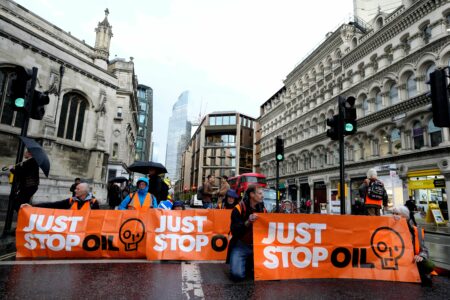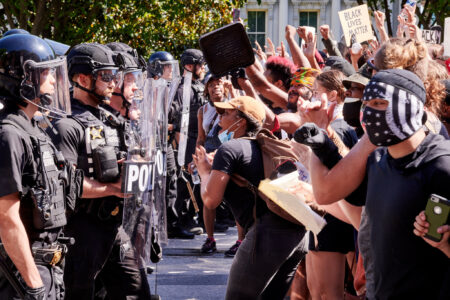When mass protests erupt in large cities, they often capture global attention with their powerful messages and impassioned participants. However, beyond the political and ideological dimensions of these demonstrations, there is an important economic aspect that deserves consideration. Who are the main beneficiaries of mass protests?
Let’s set aside the political discourse and focus solely on the economic effects of mass protests. One might wonder, what economic value do these protests bring, especially when their agendas seem unclear and their proposed solutions elusive? Take, for example, the enigmatic offshoot of Greenpeace known as “Just Stop Oil.” Critics argue that this group lacks a clear agenda and actionable proposals to combat hydrocarbon consumption and its derivatives. This raises questions about the economic rationale behind organizing rallies that disrupt the daily lives of citizens, mainly schoolchildren and students.
The first ‘beneficiaries’ are clear. In the UK, a day of standing with a poster costs approximately from 10 to 20 pounds.
The other ‘beneficiaries’ are less evident. The economic implications of mass protests become evident when we examine the financial burden they place on governments and taxpayers. Consider the case of the United Kingdom, where protests in London from April to June of a single year incurred a cost of £9 million. This price tag includes expenses related to policing, accommodation, and overtime pay for officers, with a four-day Extinction Rebellion protest alone costing nearly £1 million.
Approximately 24,000 police officers were actively engaged, resulting in an overtime expense of £1.2 million. Ensuring the security of the activists necessitated the involvement of police officers from other regions, incurring an accommodation cost of £16,266 for one person over three months.
In the United States, the George Floyd protests in a single year resulted in the $2 billion damage caused to private business. In addition to this amount, the protests cost taxpayers $350 million in direct costs for the police, protection of state property, and so on. Notably, the more rallies and protests there are, the greater the overtime expenses for law enforcement agencies.
While mass protests may seem like grassroots movements, they lead to great expenses, often proposing no meaningful agenda.
Law enforcement agencies often see increased funding for overtime work and other operational expenses during protests. This can lead to a boost in salaries for officers and additional resources for departments. Accommodating police officers and protesters from other regions, as seen in the UK, generates revenue for hotels and local businesses, indirectly benefiting the hospitality sector. The management and organization of protests involve various civil servants and administrative efforts. These tasks contribute to the employment and job security of government employees.
It’s worth noting that the management of law enforcement services during protests, particularly overtime write-offs, is often cited as one of the most corruption-prone aspects of government operations. The more rallies and protests, the greater the potential for misuse or misallocation of funds.
While mass protests are primarily driven by political and social motivations, they also have significant economic implications. The costs associated with policing and managing protests, along with the potential for corruption, underscore the complex economic dynamics at play. Understanding these nuances can lead to a more comprehensive assessment of the impact and beneficiaries of mass protests in your cities.








we shouldn’t mass protest because governments might incur extra costs like paying overtime to cops? hahaha…
hey, i have an idea: how about governments not sending cops to mass protest? they’ll save a lot a money won’t they? or how about having a ‘real’ democracy instead of having a brain-dead and corrupt political class who never does what the population wants them to do? that’ll save us a lot of mass protest and the cost associated with it, won’t it? leave your name next time.